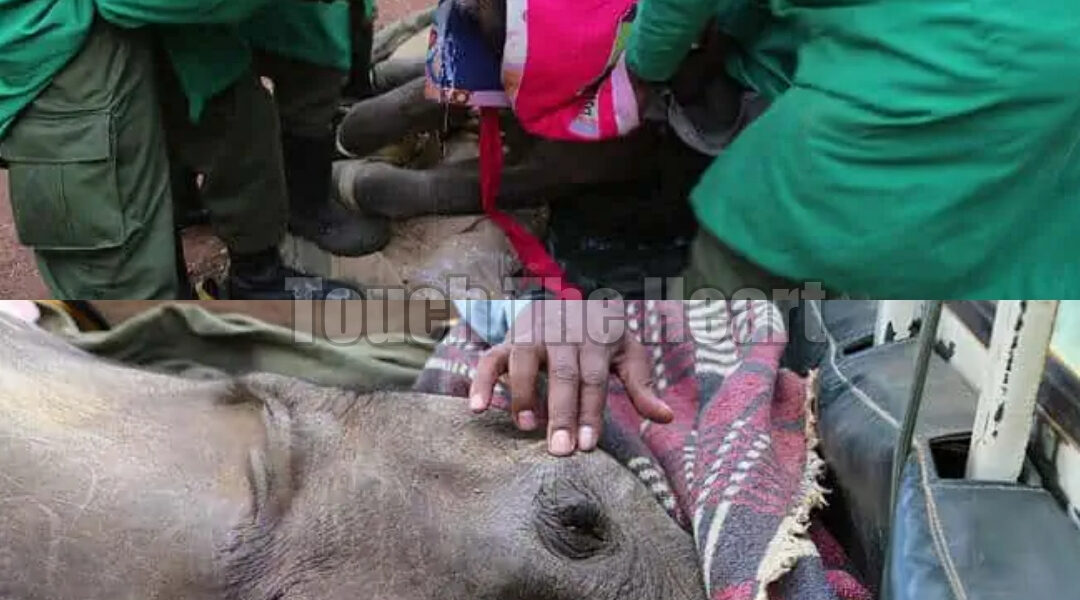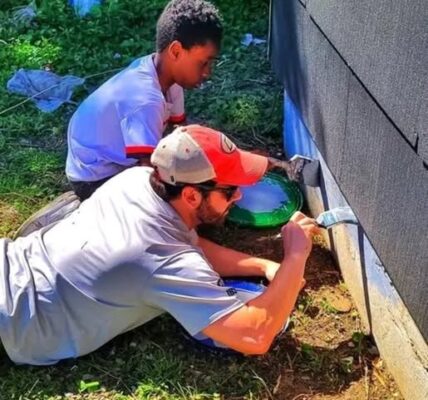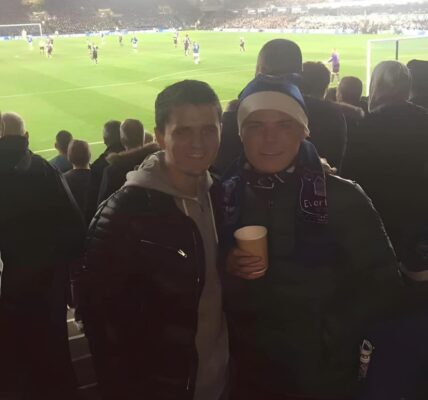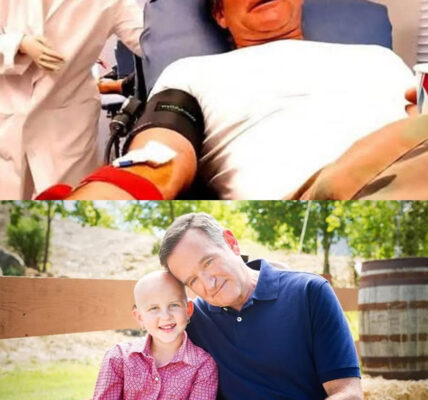She was small for an elephant — too small, too thin, too quiet.
And in the dry wilderness of Namunyak Conservancy, where life depends on strength, silence is often the first sign of fading.

Her name was Sana Sana.
No one knew exactly how long she had been alone. No one knew when she lost her mother — to poachers, drought, or predators. But one thing was certain: a baby elephant without a herd is not a survivor. She is a target. She is a heartbeat waiting to disappear into dust.
And yet, Sana Sana stayed alive.
She stayed alive through the night hyenas circled her.
She stayed alive through hunger that gnawed at her belly.
She stayed alive long enough for someone — finally — to notice.

At first, there was disagreement.
Some believed she should be rescued immediately.
Others argued she should be left to try to join a wild herd.
“Let nature handle nature,” they said.
But nature is not gentle — not to the young, not to the abandoned.
Every hour spent waiting was another hour of danger.
And then came the moment that changed everything:
A Samburu tribesman found her near his tent — trembling, wounded, and refusing to leave the small circle of firelight that protected her from the dark.
She had nowhere else to go.
That was when the calls began.
Not for pity — for help.

The David Sheldrick Wildlife Trust team moved as soon as they received permission from Kenya Wildlife Service. A rescue of an orphaned elephant is not a simple errand — it is a race against time.
When they reached her, Sana Sana did not run.
She did not fight.
She did not trumpet in fear or anger.
She simply looked at them — tired, thin, ribs showing through her skin — as if she had been waiting for someone, anyone, to finally come.
They wrapped her in blankets, checked her wounds, and loaded her into a conservancy Land Cruiser for the long drive to the airstrip. The vehicle bounced over rough roads, and each time the engine jolted, Sana Sana pressed her head against the side, searching for comfort where there was none.
But she was not alone anymore.
That was the beginning.

The flight to Nairobi was silent — the deep, heavy silence of an animal too exhausted to protest, too weak to hope, too young to understand that her life was being handed back to her one mile at a time.
When she arrived at the DSWT Nursery, the caretakers saw immediately what the wilderness had taken from her:
She was starving.
She was dehydrated.
She was depressed — the kind of sadness elephants feel in their bones.
Her tiny trunk reached half-heartedly for the milk bottle and then fell away, as if she had already learned not to trust the world to give her anything good.
But the keepers did not give up.
They fed her, slowly.
They let her rest, without force.
They sat beside her so she would not sleep alone.
And little by little — she let them in.

The moment that changed her future came not from a keeper, but from another elephant.
A gentle young female walked toward her, rumbled softly, and touched her with her trunk — not as a stranger, not as a threat, but as family.
Sana Sana froze.
Then she leaned into the touch.
Elephants do not need words for welcome.
They need presence.
Within days, she was walking with the herd.
Within weeks, she was seeking comfort in the bodies of others.
Within months, the sadness that had hollowed her out was replaced by the one thing she had nearly lost:
Belonging.

At the nursery, every orphan has a story of loss — poaching, drought, traps, conflict — but they are not raised to remember suffering.
They are raised to remember love.
Sana Sana learned how to play again.
How to reach for milk eagerly.
How to nap in the shade with her head tucked against another elephant.
She learned that keepers were not threats, but guardians.
She learned that trust was not weakness, but survival.
She learned that the world she had been born into was cruel, but the world she had been carried into was trying to heal what was broken.
The keepers whispered her name softly every morning.
Her elephant sisters wrapped trunks around her every night.
And the little elephant who once hid beside a tent now walked proudly through Nairobi Park Forest with a future waiting instead of a grave.

But her story is more than recovery.
It is proof.
Proof that intervention is not interference.
Proof that compassion is not weakness.
Proof that a single life — even the smallest — is worth saving.
Some people say humans broke the wild.
Others say humans can never fix it.

But Sana Sana is the proof in between — the proof that we cannot undo the past, but we can rewrite the ending.
She was almost lost.
She was almost forgotten.
She was almost gone before she ever grew into the size of her own shadow.

But she wasn’t.
Because someone cared.
Because someone acted.
Because someone refused to let her story end at the moment it began.
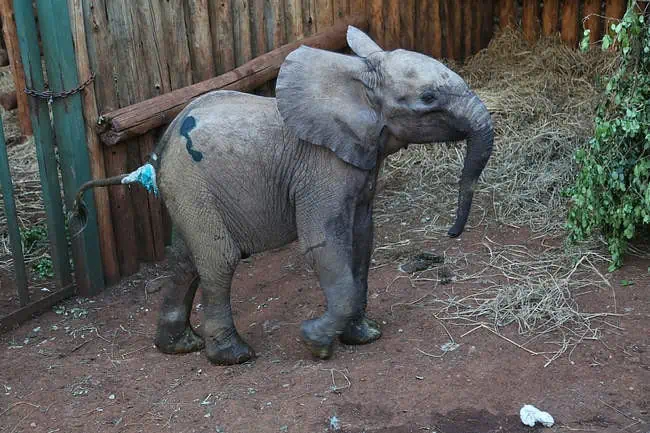
One day, when she is strong and fully grown, Sana Sana will return to the wild. She will walk under the same sky she once feared would be the last thing she ever saw. She will stand beside elephants who never knew how close she came to dying. She will raise her trunk and call into the air — not in mourning, but in freedom.
And somewhere, deep inside her, she will remember:
That once she was small.
Once she was alone.
Once she was saved.
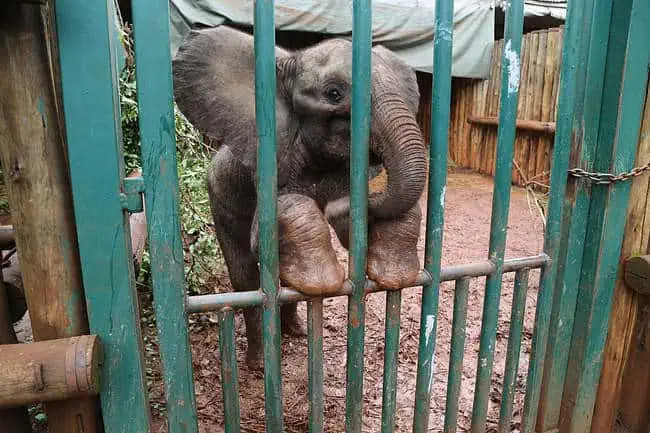
Not by luck.
Not by accident.
But by love dressed in boots and work gloves, climbing into planes and trucks and mud — refusing to let one life slip away.
Not while someone was still able to reach it.
